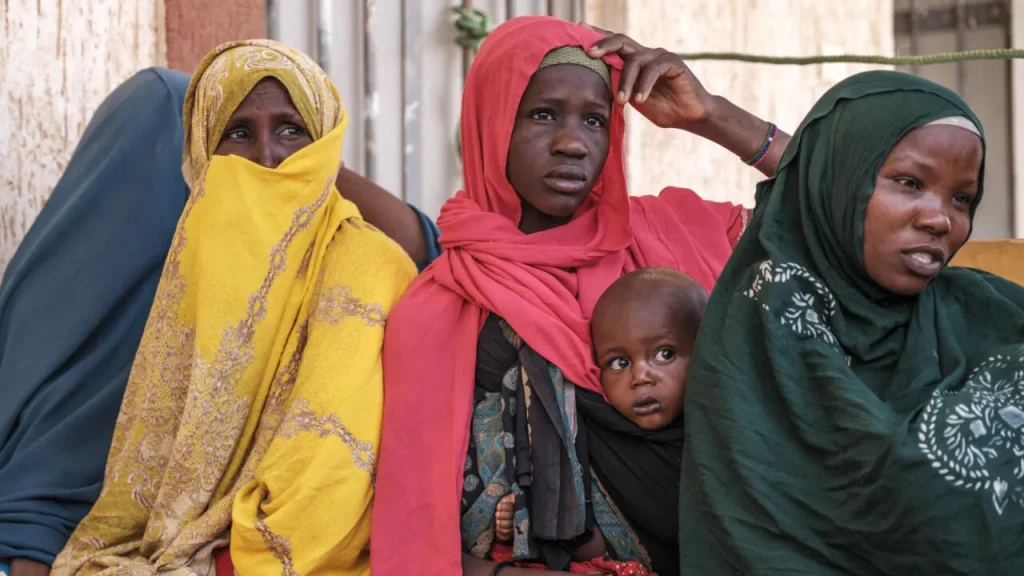A United Nations-led donor conference in Geneva aimed to secure substantial pledges to address Ethiopia’s escalating humanitarian crisis, targeting a billion-dollar commitment to provide urgent aid over three months. However, the pledges, totaling approximately €570 million, fell significantly short, leaving a critical gap in resources needed to support millions facing severe food insecurity and displacement.
Urgent Need Amid Deepening Crisis
Ethiopia is grappling with a dire humanitarian situation, with over 21 million people requiring immediate assistance due to a worsening food crisis. The conference, co-hosted by the United Kingdom, sought to bridge the funding gap to deliver life-saving aid, including food, shelter, and healthcare, particularly for the four million internally displaced individuals affected by conflict, economic challenges, and climate shocks. Organizers acknowledged that meeting the full billion-dollar goal was unlikely but emphasized the importance of starting to close the funding shortfall.
UN Assistant Secretary-General for Humanitarian Affairs Joyce Msuya underscored the ongoing need, stating, “This is only the beginning, and we hope for sustained support to meet Ethiopia’s urgent needs.” The pledges, while significant, highlight the scale of the challenge, as the broader humanitarian response plan for the year requires over €3 billion, with only a small fraction secured prior to the event.
Major Donors Step Forward
Twenty countries made new commitments during the conference. The United States, Ethiopia’s leading humanitarian donor, pledged an additional €145 million to support critical interventions. The United Kingdom, a co-host, contributed over €117 million, while the European Union, alongside its member states, committed more than €131 million. These contributions aim to address immediate needs, such as food distribution in areas like Adlale, near Gode, where the World Food Programme has been active in supporting vulnerable communities.
Despite these efforts, the funding shortfall remains stark. Shiferaw Teklemariam, commissioner of the Ethiopian Disaster Risk Management Commission, warned, “The gap is still very wide, and we must act swiftly to prevent further suffering.” The urgency is compounded by the approaching lean season from July to September, when an estimated 11 million people are expected to face critical food insecurity.
Challenges in Aid Delivery
The humanitarian crisis in Ethiopia is driven by a complex interplay of factors, including ongoing conflicts, economic instability, and climate-related shocks such as droughts and floods. The UN’s humanitarian agency, OCHA, described the situation as critical but noted a window of opportunity to halt the downward spiral through coordinated action. Britain’s Deputy Foreign Minister Andrew Mitchell called the situation “extremely worrying” but expressed optimism that collaboration with the Ethiopian government could avert further deterioration.
USAID Deputy Administrator Isobel Coleman highlighted the fragility of Ethiopia’s humanitarian landscape, noting, “Millions face severe food insecurity, and without more aid, the consequences could be dire.” She also emphasized the need for robust measures to ensure aid reaches those in need, citing past challenges. Previously, USAID and the World Food Programme paused food aid to Ethiopia due to allegations of widespread diversion, a claim the Ethiopian government denied. Conflict, particularly in regions like Tigray, continues to exacerbate food insecurity and hinder aid delivery.
A Call for Sustained Support
The shortfall in pledges underscores the chronic underfunding of Ethiopia’s humanitarian response. With millions at risk, particularly during the lean season, the international community faces pressure to increase support. The conference’s outcomes serve as a starting point, but sustained efforts are critical to address the immediate needs and build resilience against ongoing crises.






